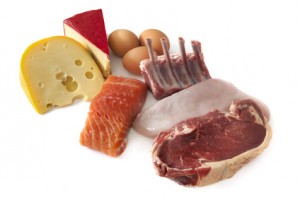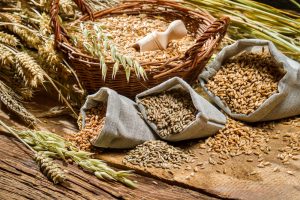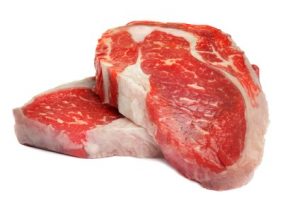Is A Vegan Diet Healthiest?
Author: Dr. Stephen Chaney
 Unless you are Rip Van Winkle and have been asleep for the past 40 years, you have probably heard that whole food, primarily plant-based diets are good for you.
Unless you are Rip Van Winkle and have been asleep for the past 40 years, you have probably heard that whole food, primarily plant-based diets are good for you.
- They help you control your weight.
- They reduce inflammation.
- They reduce your risk of diabetes and heart disease.
- They even reduce your risk of some cancers.
But do they help you live longer? If we take that question literally, the answer appears to be no. There is no “Fountain Of Youth”. There are no diets that extend our lives significantly.
However, what if you could reduce your risk of premature death? It would be tragic to have your life cut short by a heart attack or some other major disease. What if you could prevent that?
And what if you could live healthier longer? It would be equally tragic to spend your golden years debilitated by chronic diseases like heart disease, diabetes, or dementia. What if you could delay these diseases and live healthier longer?
The study I discuss this week (Y Sun, Journal of the American Heart Association, 10:e015553, 2021) looks at the effect of different dietary protein sources on premature death.
This study, like many others, suggests that primarily plant-based diets are healthier than meat-based diets. But what does this mean for you? Should you go completely meatless? Is a vegan diet healthier than other plant-based diets? I discuss what we know and what we do not know about the vegan diet compared to other plant-based diets.
How Was This Study Done?
 The data for this study were drawn from the Women’s Health Initiative (WHI). The Women’s Health Initiative was designed to help identify strategies for preventing heart disease and other diseases in postmenopausal women. It enrolled 161,000 postmenopausal women from 40 sites across the US between 1993 and 1998 and followed them through 2017.
The data for this study were drawn from the Women’s Health Initiative (WHI). The Women’s Health Initiative was designed to help identify strategies for preventing heart disease and other diseases in postmenopausal women. It enrolled 161,000 postmenopausal women from 40 sites across the US between 1993 and 1998 and followed them through 2017.
This study excluded women who had heart disease or cancer when they entered the WHI study and women who had incomplete data on either their diet or their use of postmenopausal hormone therapy. They were left with 102,521 women, age 50-79 at time of entry, who were followed for 18 years.
Each woman filed out an extensive dietary survey at the beginning of the study. There were 25,976 deaths during the study. The cause of death was determined by reviewing death certificates, medical records, autopsy reports or by linkage to the National Death Index.
The investigators asked whether women who ate more plant proteins were healthier than those who ate primarily meat protein. To answer this question, they correlated protein sources in the diet with all-cause mortality and deaths from various diseases.
The greatest difficulty with this type of study is that people who eat more plant protein tend to have a healthier diet and a healthier lifestyle. That makes it hard to separate out the benefits of eating plant proteins from benefits associated with other aspects of their diet and lifestyle. So, the authors corrected their data for every factor known to influence the risk of heart disease, diabetes, dementia, and premature death.
Specifically, the data were statistically corrected for age, race/ethnicity, socioeconomic status, hormone use, lifestyle (smoking status, physical activity, and alcohol intake), baseline health status (diabetes and/or high blood cholesterol), family history of heart attack/stroke, dietary factors (calorie intake, dietary fiber intake, whole grain consumption, fruit and vegetable consumption, sugar-sweetened beverage consumption, glycemic load (effect of foods in the diet on blood sugar), and percentage of saturated fats, polyunsaturated fats, monounsaturated fats, and trans fats), and weight (BMI).
In short, the authors corrected for every other factor that could influence disease risk and/or premature death. By doing so, they were able to focus on the effect of protein sources on disease risk and/or premature death.
Will Plant Proteins Help You Live Longer?
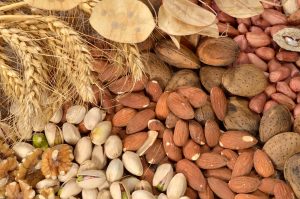 The investigators divided the study participants into quintiles with respect the kind and amount of protein they consumed.
The investigators divided the study participants into quintiles with respect the kind and amount of protein they consumed.
- For animal protein, the intake ranged from 4 ounces/day in the lowest quintile to 9 ounces a day in the highest quintile (For comparison, 3 ounces is roughly equivalent to the size of a deck of cards).
- For plant protein, the intake ranged from 2 ounces/day in the lowest quintile to 3.5 ounces/day in the highest quintile.
- When you combine plant and animal protein in these women’s diet, plant protein ranged from 18% of total protein intake in the lowest quintile to 48% of total protein intake in the highest quintile.
When women who had the highest intake for plant protein were compared with women who had the lowest intake of plant protein, the women with the highest plant protein intake had:
- 12% lower risk of premature death from heart disease.
- 21% lower risk of premature death from dementia.
- 9% lower risk of premature death from all causes.
There was an inverse relationship between the amount of plant protein in the diet and premature death. Specifically, every 3 ounces of animal protein that was replaced with 3 ounces of plant protein resulted in:
- 22% lower risk of premature death from heart disease.
- 19% lower risk of premature death from dementia.
- 14% lower risk of premature death from all causes.
The Effect Of Individual Animal Proteins On Mortality
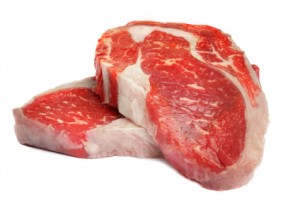 The authors also looked at the effect of various animal proteins on premature death. For example:
The authors also looked at the effect of various animal proteins on premature death. For example:
Red Meat: Women with the highest consumption of red meat had:
- 14% higher risk of premature death from heart disease.
- 20% higher risk of premature death from dementia.
- 10% higher risk of premature death from all causes.
Eggs: Women with the highest consumption of eggs had:
- 24% higher risk of premature death from heart disease.
- 14% lower risk of premature death from dementia.
- 14% higher risk of premature death from all causes.
Dairy: Women with the highest consumption of dairy had:
- 11% higher risk of premature death from heart disease.
The authors concluded, “In this large prospective cohort study, we found that higher plant protein intake and substitution of animal protein with plant protein were associated with lower risk of all-cause mortality, cardiovascular mortality, and dementia mortality…Our findings support the need for consideration of protein sources, in addition to the amount of protein intake, in future dietary guidelines.”
Is A Vegan Diet Healthiest?
 Years ago, as my brother-in-law was coming out of anesthesia at the end of quadruple bypass surgery, the first question he asked was, “Does this mean I need to eat tofu?” Obviously, nothing terrified him more than the thought of eating tofu the rest of his life. In the same vein, some of you are probably asking, “Does this mean I need to go vegan?”
Years ago, as my brother-in-law was coming out of anesthesia at the end of quadruple bypass surgery, the first question he asked was, “Does this mean I need to eat tofu?” Obviously, nothing terrified him more than the thought of eating tofu the rest of his life. In the same vein, some of you are probably asking, “Does this mean I need to go vegan?”
The good news is that none of the women in this study were consuming a vegan diet. They were consuming a typical American diet with varying amounts of plant and animal protein. The group with the highest plant protein consumption were still getting 52% of their protein from animal sources.
This study shows that even people consuming a typical American diet can become healthier by simply swapping out some of the animal protein in their diet with plant protein.
However, you are probably thinking, “Plant protein is good for us, and a vegan diet is 100% plant protein. Does that mean a vegan diet is healthier than other plant-based diets?
The answer is………”Maybe”
If the linear relationship between plant protein consumption and risk of premature death could be extrapolated all the way to 100% plant protein, the answer would be obvious. Vegan diets would be healthier than other plant-based diets. But that extrapolation is an assumption. It might not be true.
For example, some recent studies suggest that completely eliminating meat, eggs, and dairy from your diet may slightly increase your risk of heart disease and stroke:
- One recent study found that adding 1.4 ounces of fish/day to a primarily vegetarian diet decreases the risk of stroke by 20%.
- Another study reported that adding one egg/day to a primarily vegetarian diet decreases the risk of heart disease by 12% and stroke by 10-26%.
These studies need to be confirmed, but they do suggest we need to be cautious about assuming that vegan diets are healthier than other primarily plant-based diets. This is why, when I recommend primarily plant-based diets, I include everything from vegan through semi-vegetarian, Mediterranean, and DASH.
They are all healthy diets. My advice is to choose the one that best fits your lifestyle and food preferences. And focus on whole foods, not processed foods.
The Bottom Line
A recent study asked whether women who ate more plant proteins were healthier than those who ate primarily meat protein. To answer this question, the investigators correlated protein sources in the diet with all-cause mortality and deaths from various diseases.
When women who had the highest intake for plant protein were compared with women who had the lowest intake of plant protein, the women with the highest plant protein intake had:
- 12% lower risk of premature death from heart disease.
- 21% lower risk of premature death from dementia.
- 9% lower risk of premature death from all causes.
There was an inverse relationship between the amount of plant protein in the diet and premature death. Specifically, every 3 ounces of animal protein that was replaced with 3 ounces of plant protein resulted in:
- 22% lower risk of premature death from heart disease.
- 19% lower risk of premature death from dementia.
- 14% lower risk of premature death from all causes.
[Note: A 3-ounce serving is roughly equivalent to a deck of cards.]
The authors concluded, “In this large prospective cohort study, we found that higher plant protein intake and substitution of animal protein with plant protein were associated with lower risk of all-cause mortality, cardiovascular mortality, and dementia mortality…Our findings support the need for consideration of protein sources, in addition to the amount of protein intake, in future dietary guidelines.”
Years ago, as my brother-in-law was coming out of anesthesia at the end of quadruple bypass surgery, the first question he asked was, “Does this mean I need to eat tofu?” Obviously, nothing terrified him more than the thought of eating tofu the rest of his life. In the same vein, some of you are probably asking, “Does this mean I need to go vegan?”
I discuss the answer to that question in the article above.
For more details and a discussion about the vegan diet versus other primarily plant-based diets read the article above.
These statements have not been evaluated by the Food and Drug Administration. This information is not intended to diagnose, treat, cure, or prevent any disease.



